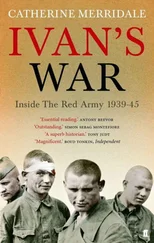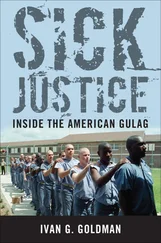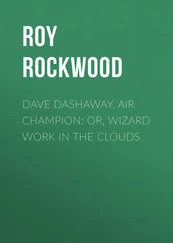I relaxed somewhat; baseball rivalry was not necessarily lethal. But it is surprising how an old grudge can hold up. In a ring constructed over the infield of the White Sox stadium, Comiskey Park, Casper on a cool clear Columbus Day had defeated Kid Agnelli-knockout, third round-before twenty-five thousand paying customers, and the owner of the White Sox and the ballpark, Charles Comiskey, had shorted us on the purse. Not for nothing was he known in Chicago sporting circles as Cheap Charlie. I would root against him and his team if they were the last baseball nine on earth. “My allegiance is to the Cubs,” I put it more temperately to Skinner. “I once saw Tinker to Evers to Chance produce four double plays in one game. Masterful.”
Skinner hooted. “The Cubs ain’t what they used to be. The Sox got the real players these days, they’re going to the Series, you watch.”
“I shall.” Sealing the book list in a gummed envelope, I handed it to him indicatively. “Now, do you suppose this missive could possibly find its way to the Daily Post?”
No sooner had the messenger scampered off than Sandison filled the doorway. Bypassing his desk, he lumbered over to the stained-glass window and peered out through one of the whorls like a boy at a knothole, a sign that something was on his mind. Something on his desk that he did not want to face.
“Sandy, you seem perturbed,” I said diplomatically.
“I’ve just been with the trustees. They raked me over the coals about the library budget. Wanted to know where every damn penny goes.” Turning from the window, he shook his head, the wool of his beard quivering. “They have a reason, I suppose. Few months ago, the city treasurer took off with everything he could lay his hands on.”
“Bad?”
“Enough that the elected fools downtown see an embezzler under every bed now. Damn it, I thought it was hard to keep track of a few thousand cows-that was nothing compared to running this outfit.” He passed a hefty hand over his cowlick as if trying to clear his head from there on in. “Spending that much time on numbers drives me up the wall. I don’t see why the idiot trustees can’t just trust a man.”
I remember it exactly. Opportunity was in the air of that office, distinct as ozone. Idly piling paperwork from here to there, I said as though his bookkeeping burden were merely something I could add to the other stacks on my desk: “Thank heaven you have an arithmetical person on hand.”
“Who?” Sandison eyed me. “You? You mean you can handle books that don’t have mile-long words in them?”
“Assuredly.”
“Are you telling me you’re a certified accountant?”
“Mmm, certified perhaps is too confining a term. As you might imagine, standards are different from here to there. But along the way in life, I’ve had considerable experience with ledgers.”
Sandison dropped into his desk chair, his weight sending it wheeling toward me. “Morgan? You just said you’re not an accountant. What the hell then do you do with these ledgers you’re talking about?”
“Oh, mend them. From the inside out.” From his furrowed look, I could tell Sandison was not satisfied with that reply. “Let me put it this way, Sandy. Numbers are simply a language I happen to understand-Latin, numeracy, both have certain principles, fundamental in themselves. Surely you know the story of the bookkeeper and the desk drawer? No? Allow me. Every morning, a certain bookkeeper would come into the office of the firm, hang up his hat and coat, seat himself at his desk, pull out a drawer and look in it for a few seconds, shut it, and only then turn to his work. For forty years this went on-the same drawer, opened and shut, every morning. Finally came the day he retired, and the minute he left the office for the last time, the rest of the office staff crowded around his desk and one of them slowly opened that drawer. In it was a single sheet of paper. On it was written: ‘Debits go on the left, credits on the right.’ ”
Sandison did not find my little tale as entertaining as I had hoped. “The long and short of it is,” came his rumble, “you claim you know how to balance the books.”
I nodded. “To the last penny, if it comes to that.”
He sat there and frowned for some time. He could be intent as a fiend when he was mulling a matter. “All right,” he grudgingly granted at last, “you probably can’t make any more mess of the arithmetic than I have. You’re in charge of the damn bookkeeping. Come over here and start getting acquainted with the ledgers.”
I walked on air back to the boardinghouse at the end of that day. The one fundamental principle of bookkeeping that had always stood out to me was that if you know how and where the money flows, you are hard to get rid of.

Live it up while you can, Mister Man About Town,
Because what you gonna do when the rent comes roun’?
Whistling it softly to myself, I contradicted the catchy popular tune by counting out my rent money as usual, that subsequent week, as I came down a few minutes early for supper. Grace was not there to take it. The table was not yet set. This was a new experience; generally the Faraday Boarding House ran like a seven-day clock.
I peeked in the kitchen, to find supper uncooked but Grace steaming.
“Make yourself useful, please,” she said testily, bent low to the opened oven. “Yell up to the others that supper will be a while yet. This bird refuses to get done.”
In double defiance-pale and dry-the latest turkey lay there in the roaster, and after calling upstairs to Hoop and Griff to hold on to their appetites, I returned to the kitchen, rolling up my sleeves. “If I might suggest, it is time to baste the beast.”
“Baste,” Grace said, with a fry cook’s doubtfulness.
“Allow me.” Crouching where she had been, I spooned the turkey’s drippings over the breast and drumsticks, then stoked up the kitchen stove with a couple of pitchy sticks of wood. “There, now, the meal has no choice but to cook.”
No sooner had I said so than the floor did a little dance. Silver-ware jingled, and Grace steadied a cream pitcher. After a moment, she dismissed the latest shake of everything. “That could have been worse.”
“Grace,” I let out along with my breath, “I will gladly take your word for that.” I doubted I could ever get used to dynamite going off beneath the house.
Pushing a rather fetching flaxen wisp of hair off her forehead, she studied me as if I was the newest distraction. “Sit down for a minute, star boarder. There’s something we need to talk about.”
I went still. Was I in for another grilling about whether I was an IWW secret operative? What was I supposed to do, march around Butte wearing a sandwich board that read I AM NOT A WOBBLY?
“If it’s about an unfortunate event in the library a while back,” I fended as I settled across the kitchen table from her, “that was sheerly a case of mistaken-”
“It’s church,” she announced, rolling her eyes. “There’s talk. About us. ‘Ye and me,’ ” and she did not a bad imitation of the wee Welsh preacher. Griff had been asked to fill in with the choir a few more times, and the two of us and Hoop duly had made command performances as audience. What was wrong with that? Answering my inquiring look, Grace fanned with a hand as if brushing away pests. “What some of the nosy ones around the neighborhood are saying is”-she reddened at the exact words-“I’m taking up with a boarder. The old biddies.”
Gossip, forever the whisper in the wind. “Mmm,” I met Grace’s report with uncertainty.
“Morrie?” Her violet eyes took in mine, a test that wouldn’t go away. “Do you feel, um, taken up with?”
Читать дальше











